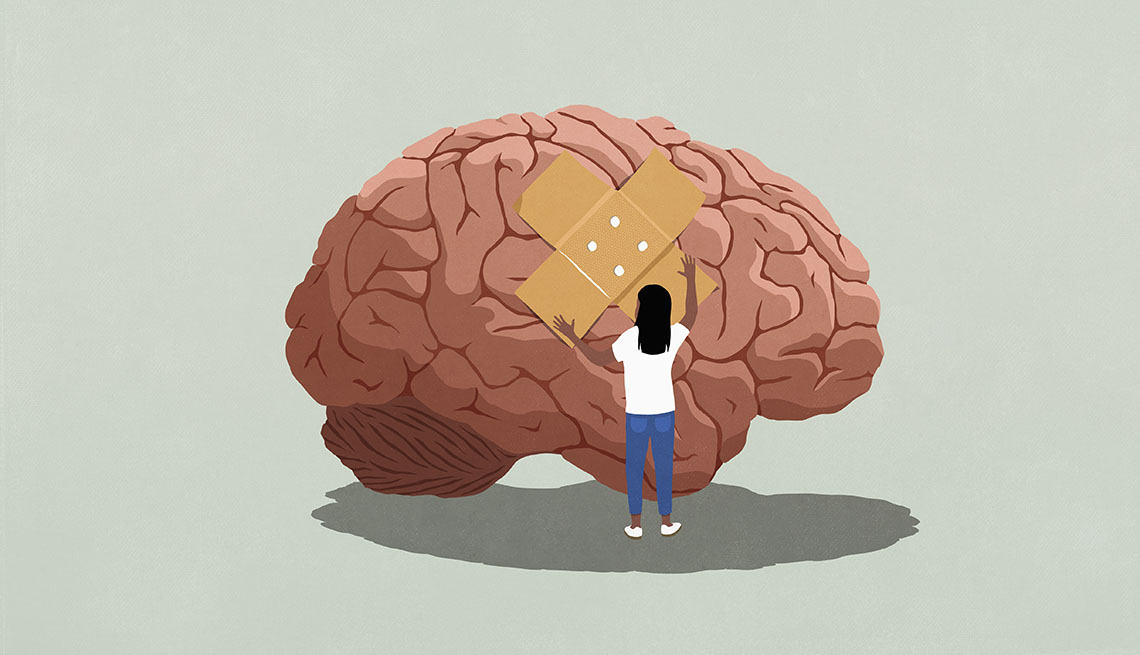
- Select a language for the TTS:
- UK English Female
- UK English Male
- US English Female
- US English Male
- Australian Female
- Australian Male
- Language selected: (auto detect) - EN
Play all audios:
Adding to the risk is the use of blood thinners, a common type of medication among the older population. If you’re being evaluated for a fall, it’s important to tell your doctor about all of
the medicines you are taking, including over-the-counter antiplatelet drugs like aspirin. And because bleeding can be slow and, as Figler explains, “accumulate over the course of time,”
don’t be surprised if your doctor keeps you overnight for observation. “The key is making sure that we’re monitoring people afterwards, because the biggest risk is missing that [bleeding]
and somebody potentially dying from an intracranial bleed,” he adds. 4. REST IS THE KEY TO RECOVERY The good news: Most people with a concussion recover quickly and fully, the CDC says,
though the process may be slower in older adults. Recovery typically involves a lot of rest — both physical and mental — in the first few days. Then, as symptoms improve, you can ease back
into routine activities. Not giving your brain enough time to recover could put you at risk for more long-term injuries if you take another hit to the head. “When your brain is already in a
state where there’s a mild injury and it’s healing, sometimes that second injury becomes something more life-threatening,” Chu says. 5. YOU CAN REDUCE YOUR RISK FOR BRAIN INJURIES One
message doctors and public health officials want to drive home is prevention. Always wear a helmet when you are biking or skiing, Chu advises. And don’t forget your seat belt in the car.
Older adults, in particular, can take a few extra steps to reduce their risk of falling, and therefore their risk of a concussion. At the top of the list: Exercise often and be sure to focus
on exercises that help to improve your strength and balance. “Exercise is one of the most important components that we think can help reduce the risk of falls,” Figler says. “And I can’t
stress balance enough. Balance is a huge component, because balance is a neurological and a muscular function that, combined, keeps us upright. And when we lose that balance, for whatever
reason, we are at a significant increased risk of falling.” Ask your doctor to check your eyes and feet annually. And while you’re there, be sure to have your list of medications reviewed.
Some drugs, or a combination of them, can make you feel dizzy or sleepy and put you at risk for a fall. “There are typically other medications we can potentially try that might make a
difference,” Figler says. Make sure you’re staying hydrated, since dehydration can cause falls. Finally, take stock of tripping hazards in your home and remove them. Clear clutter in
high-traffic areas (especially on stairs) and remove small throw rugs or use double-sided tape to keep them from moving, the CDC recommends. Use nonslip mats in the bathtub and swap dim
lights for brighter bulbs. Video: Why TBIs Can Be More Dangerous in Older Adults _Editor's note: This story, first published March 10, 2023, has been updated to include new
information._








